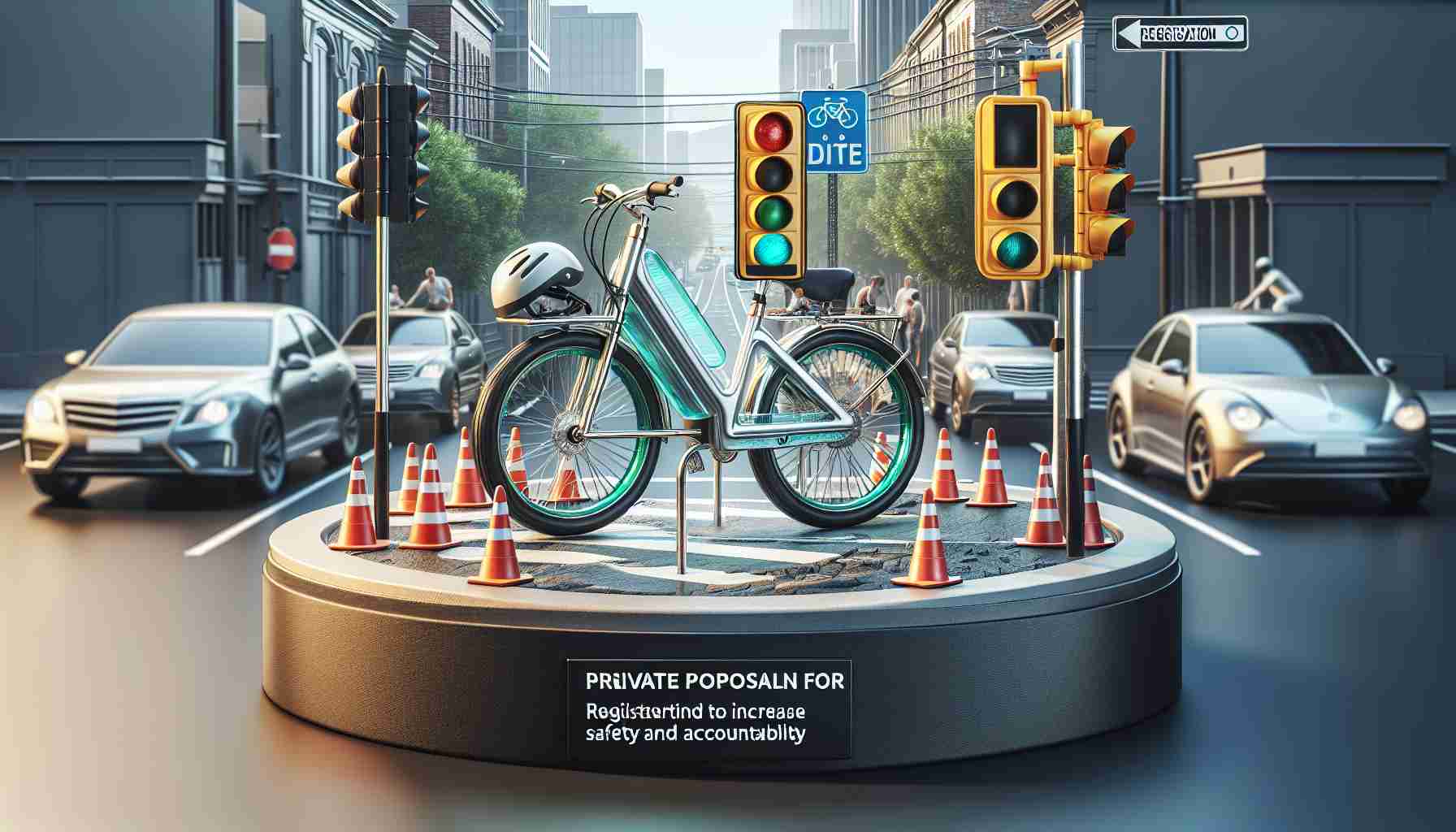In recent years, the rise in the number of e-bikes on city streets has brought about concerns regarding safety and accountability. While the City Department of Transportation reports that only six pedestrians have been killed by e-bikes since 2019, members of the E-Vehicle Safety Alliance argue that there are many more severe injuries that often go unreported. This has prompted a group to call for the registration of e-bikes, in an effort to improve accountability when accidents occur.
The tragic case of Priscilla Loke, an esteemed educator hit by an e-bike in Chinatown, highlights the urgency of the issue. Loke’s colleagues vividly recall the devastating aftermath of the incident, with her passing away just days later. The driver responsible for the accident was only penalized for a red light violation. This incident, along with numerous others, has led victims and their supporters to demand action.
Advocates for e-bike registration argue that it would establish a much-needed system of accountability. They draw parallels to owning a car, where drivers are required to pay insurance, obtain a license, and register their vehicles. Councilmember Robert Holden asserts the necessity of a similar approach for e-bikes, suggesting the introduction of license plates and registration. This system would facilitate identification of reckless riders and provide a means of recourse for victims.
While official statistics highlight a relatively low number of fatal accidents involving e-bikes, the E-Vehicle Safety Alliance contends that severe injuries are far more common and frequently go unreported. Victims recount a myriad of traumas, including broken bones, traumatic brain injuries, paralysis, and even death. The Alliance emphasizes that, beyond the statistics, these incidents deeply impact the lives of those involved, leaving physical and emotional scars that may never fully heal.
Despite having 31 sponsors, a vote on the proposed legislation, known as Priscilla’s Law, has yet to take place for the second consecutive year. Supporters believe that this is a matter of public safety akin to having crosswalks, traffic lights, and speed limits. They contend that the implementation of e-bike registration would be a crucial step forward in ensuring the well-being of all road users.
As the discussion continues, it remains to be seen whether the City Council will act to pass Priscilla’s Law. In the meantime, victims and their advocates remain steadfast in their pursuit of a safer and more accountable e-biking environment.
The e-bike industry has experienced significant growth in recent years. According to a report by Research and Markets, the global e-bike market is projected to reach $38.6 billion by 2025, growing at a compound annual growth rate of 9.7% from 2019 to 2025. This surge in demand can be attributed to various factors, including increasing concerns about pollution, rising fuel prices, and a growing interest in sustainable transportation options.
However, along with the popularity of e-bikes, concerns about safety and accountability have emerged. The rising number of e-bikes on city streets has raised questions about how to ensure the well-being of both riders and pedestrians. This has led to debates about the need for regulations and policies to address these concerns.
One of the issues at the center of the debate is the lack of a comprehensive reporting system for e-bike accidents. The City Department of Transportation reports that only six pedestrians have been killed by e-bikes since 2019. However, the E-Vehicle Safety Alliance argues that this number fails to capture the full extent of the problem, as many severe injuries from e-bike accidents often go unreported. This discrepancy in reporting has prompted calls for the registration of e-bikes to improve accountability when accidents occur.
Supporters of e-bike registration argue that it would establish a system of accountability similar to that for car owners. They believe that e-bike riders should be required to pay insurance, obtain a license, and register their vehicles, similar to what is required for car ownership. This would enable the identification of reckless riders and provide a means of recourse for victims in the event of an accident.
However, the implementation of e-bike registration has faced challenges. A proposed legislation known as Priscilla’s Law, named after Priscilla Loke, who was tragically killed in an e-bike accident in Chinatown, has yet to be voted on for the second consecutive year. The legislation, which would introduce e-bike registration and other safety measures, has garnered the support of 31 sponsors. Supporters argue that this is a matter of public safety, and passing Priscilla’s Law would be a crucial step forward in ensuring the well-being of all road users.
As the discussion around e-bike safety and accountability continues, it remains to be seen whether the City Council will act to pass Priscilla’s Law or similar legislation. In the meantime, victims and their advocates continue to push for a safer and more accountable e-biking environment.














